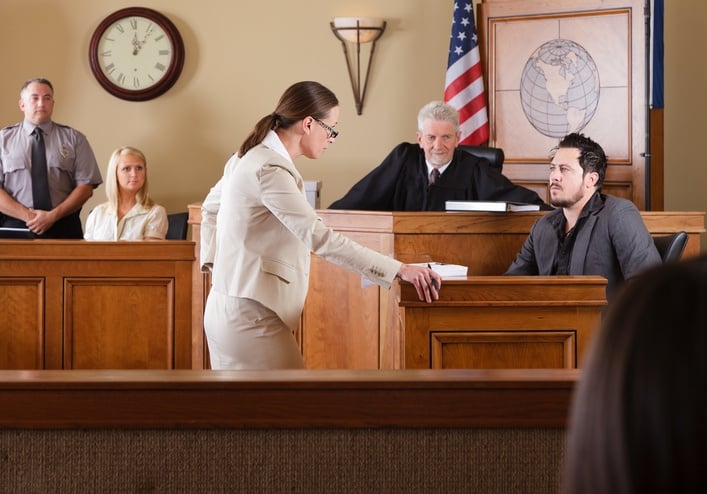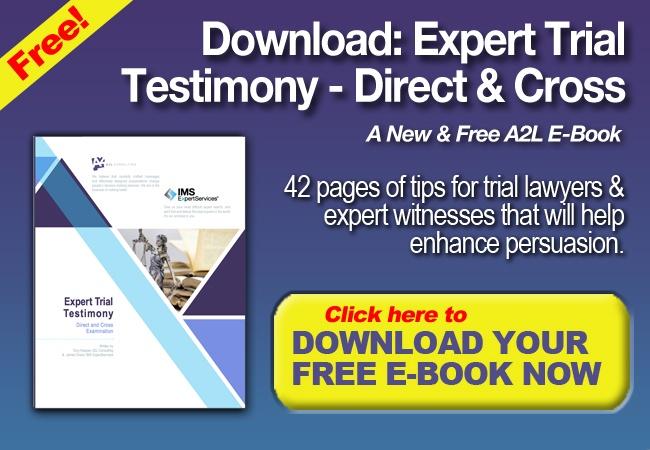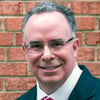by Tony Klapper
(former) Managing Director, Litigation Consulting
A2L Consulting
In our last post, we discussed why expert witnesses should rely on visual aids and litigation graphics in preparing their testimony.
Another key point for expert witnesses is that no matter how well credentialed a witness is, if the jury thinks he is a jackass or if he acts in a way that is inconsistent with jurors’ perception of how an expert should act, his testimony will be useless.
In every trial, the jury and the judge evaluate the credibility of every witness who testifies. If you have done something as a witness to lessen your credibility quotient, what you say will either be filtered through that lens or not even considered.
For example, some experts make the mistake of engaging opposing counsel in a pitched battle during cross-examination. While a feisty expert who resists answering “yes” or “no” questions might be seen by her attorney as a hero, the jury more likely sees an expert who is being difficult -- particularly when the “yes” and “no” questions are intuitively answerable. Similarly, an expert who regularly resorts to “I don’t recall” and “I don’t know” responses to questions that objectively seem knowable and recallable also undercuts her credibility. The same is true of an expert who fights over the meaning of words that have common meanings, or starts asking questions of the questioner.
When these things happen, the expert no longer is perceived as an expert; she is perceived as an advocate who is hiding some element of the truth. Even when the expert is not on the witness stand, how the expert interacts with court staff, opposing counsel, and even her own team can affect the expert’s perceived credibility. Being gracious and dignified can help; being cocky or surly can hurt.
For better or worse, jury trials can be show trials. While they certainly involve the search for truth, the way that truth is arrived at is often foreign and unnatural to the novice testifier. For example, unlike the laboratory or classroom, your evaluators at a jury trial are often less educated and less patient.
Additionally, unlike normal conversations, the questions asked and answered at a jury trial are orchestrated and controlled by arcane evidentiary and procedural rules. While being liked and respected is important in the “real world,” its impact is magnified dramatically in the courtroom, where snap decisions and judgments are made by people you have never met before and will likely never meet again. Not recognizing these facts can spell disaster.
Another key issue for the expert witness is to realize that she is going to be in very good company, intellectually, during the trial. She may see herself as the smartest person in the room on her subject matter. Is she? Perhaps. She needs to recognize that some of the best trial lawyers pride themselves in playing the game of one-upmanship and outmaneuvering and outworking the expert.
Those lawyers have some very real advantages. First, they are smart. They may not be as educated as you in the field of your expertise, but they are quick studies and careful readers. The best lawyers take great pride in securing the winning admission from the other side’s experts -- albeit with a smile on their face. Many a war story has been told of a cross-examination that brought a testifying expert to tears or so frazzled the expert that he caved on points that he did not need to cave on. Sometimes aggressive lawyering on cross-examination can backfire, and the expert is perceived as a victim and the lawyer as a bully. But sometimes the jury (like the throngs at a gladiator fight in ancient Rome) waits with anticipation for at least some blood to be drawn.
Second, in cases with significant economic exposure or opportunity, opposing counsel will likely be well-financed. They will have a team of associates, and possibly even science consultants, available to look for ways to outsmart you. They will have scoured all of your writings and the scientific literature you have relied upon. They might have better recall about footnote 29 or the limitations expressed by another author about the regression analysis in one of the studies upon which you rely. And they will be looking for statements and opinions that are flat-out inconsistent (or appear inconsistent) with the statements and positions you presented in your expert report and direct examination
Third, opposing counsel will know the case backwards and forwards. As an expert, you invariably must rely on your understanding of at least some of the facts in order to apply those facts to whatever scientific methodology you employ -- though sometimes you are simply asked to assume certain facts as true. Either way, opposing counsel will work hard to exploit any of your knowledge gaps with what they perceive to be the “real facts.”
The simple solution is to remember that you really are THE expert. If you believe in your opinions and have prepared properly for your testimony, you will do just fine.






Leave a Comment